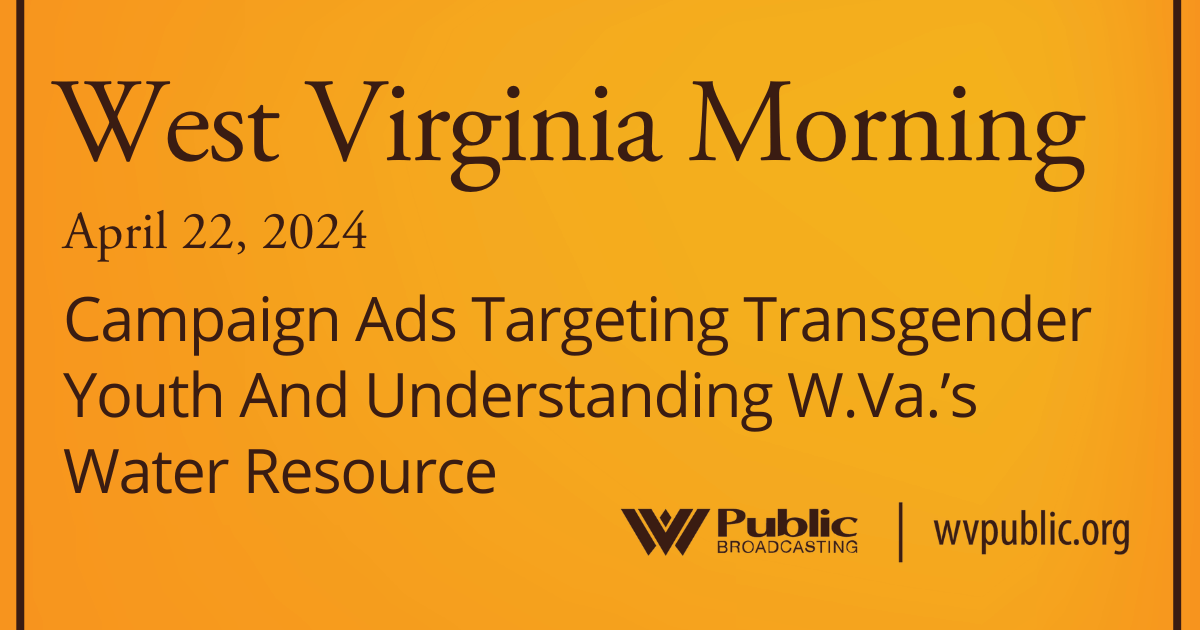On this West Virginia Morning, as the primary race for governor enters the home stretch, some candidate’s negative attack ads running endlessly on broadcast and social media target a minority group – transgender children. But what is the fallout from these ads for this vulnerable group, and West Virginia children and families in general? Randy Yohe has the story.
Also, in this show, West Virginia has many rivers and creeks all over the state and they are all a bit different. Some are wide and slow moving, some narrow and turbulent. Some flow north and some flow south. On this Earth Day, Briana Heaney sat down with Nicolas Zegre from West Virginia University’s (WVU) Mountain Hydrology Center to talk about one of West Virginia’s most abundant resources – water.
West Virginia Morning is a production of West Virginia Public Broadcasting which is solely responsible for its content.
Support for our news bureaus comes from Shepherd University.
Eric Douglas produced this episode.
Listen to West Virginia Morning weekdays at 7:43 a.m. on WVPB Radio or subscribe to the podcast and never miss an episode. #WVMorning
